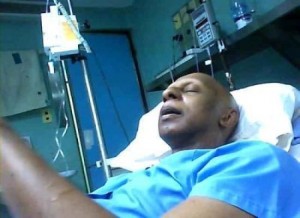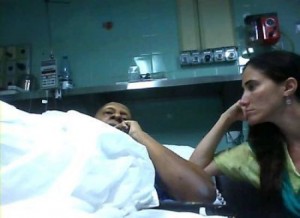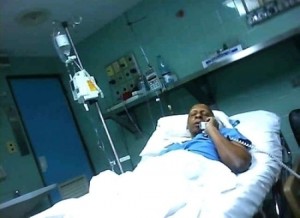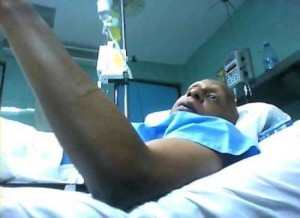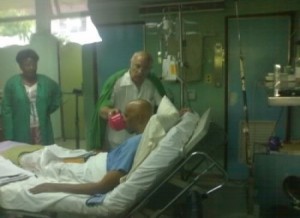 After 134 days without solid food, or even a sip of liquid, Guillermo Fariñas lifted a red plastic cup to his lips and drank a little water. It was 2:15 in the afternoon on Thursday July 8, and from the other side of the glass in the intensive care ward where he was being treated, dozens of friends watching him burst into applause as if they had been witnesses to a miracle.
After 134 days without solid food, or even a sip of liquid, Guillermo Fariñas lifted a red plastic cup to his lips and drank a little water. It was 2:15 in the afternoon on Thursday July 8, and from the other side of the glass in the intensive care ward where he was being treated, dozens of friends watching him burst into applause as if they had been witnesses to a miracle.
Fariñas had won one battle but still remains in a fierce war against death, because the land that has seen the action of this singular belligerency is his own body — ultimately the only space available to him to carry out this campaign. His intestines are now like fragile paper conduits distilling bacteria through their pores, his jugular vein is partially obstructed by a blood clot which, if it detached, could lodge in the heart, brain or lungs; or more precisely, in his heart, his brain or his lungs. He has suffered four staph infections and at night a sharp pain in his groin barely allows him to sleep.
His shriveled esophagus was not ready for that first sip of water. It created such a pain in his chest that for a minute he thought he was having a heart attack, but he endured it in silence. On the other side of the glass, expectantly watching, were those who for days had been keeping a vigil outside the hospital, praying for his life, and others who had come from very far away to ask him to end his martyrdom and to be a witnesses to his victory. Not wanting to dampen the celebration of his jubilant colleagues applauding the triumph of his cause, he managed to turn a grimace into a smile.
Guillermo Fariñas’s family allowed me to watch over him on this, the first night after the end of his hunger strike, and he allowed me to be a witness his suffering, his occasional crankiness, and his human weaknesses. Only then did I discover the true hero of this day.
